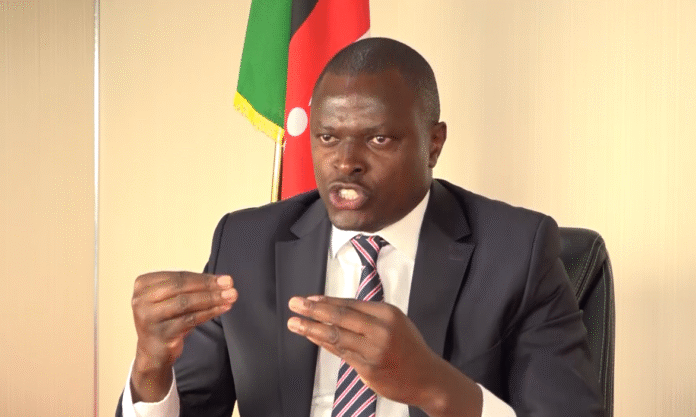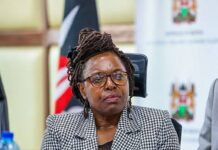Kiharu MP Ndindi Nyoro has accused the government of misleading Kenyans over the recent fuel price hikes, claiming the real problem is not global oil prices but excessive taxation and secretive borrowing.
In a statement on Tuesday, July 15, 2025, Nyoro dismissed the Ministry of Energy’s explanation that the surge at the pump is due to international market fluctuations.
He pointed out that global oil prices peaked last year—not in 2025—making the current narrative misleading.
“In a country like Kenya, which produces oil, the government’s most effective tool to stabilise fuel prices is adjusting taxes. Regrettably, this is where the government is failing its citizens,” Nyoro said.
This comes amid the Energy and Petroleum Regulatory Authority (EPRA) announcing a sharp increase in the maximum pump prices for petroleum products.
The hike, which runs through to August 14, 2025, comes as global fuel costs continue to climb, further tightening the financial pressure on motorists and households already grappling with a high cost of living.
According to the legislator, over Ksh 80 per litre of petrol and Ksh 76 for other fuels go directly to taxes and levies, a burden he says is choking the economy.
Nyoro further revealed that in 2024, the government quietly introduced a 7-shilling fuel levy at a time when global prices were declining. Instead of passing on relief to Kenyans, he says, the government increased costs, leaving households and businesses grappling with skyrocketing expenses.
“Instead of reducing fuel costs when global prices dropped, the government imposed additional levies, making life harder for Kenyans,” he said.
Even more alarming, Nyoro claims the government has securitised the fuel levy to borrow Ksh175 billion, using future collections as collateral. He says this debt is not reflected in the official debt register and never came before Parliament for approval, raising serious accountability questions.
“This off-book borrowing raises critical issues: How much has been borrowed? From whom? At what interest rate? And what are the implications for our future budgets?” Nyoro posed.
The MP warned that securitising public levies without parliamentary oversight is mortgaging Kenya’s financial future, setting a dangerous precedent for future administrations.
“If this continues unchecked, what will stop future governments from securitising VAT, PAYE, or NHIF contributions? What will be left of Kenya’s financial sovereignty?” he asked.
Nyoro’s remarks come at a time when Kenyans are struggling with the high cost of living. Fuel price increases have triggered a ripple effect across the economy, impacting transportation, food costs, and overall financial stability.
The Kiharu MP is calling for urgent transparency from the National Treasury, demanding a public audit of all off-book borrowing and a national conversation on sustainable fiscal management.
“Kenyans deserve to know the truth about how their money is being managed. We cannot allow secretive borrowing to jeopardise our nation’s financial stability,” he concluded.



















